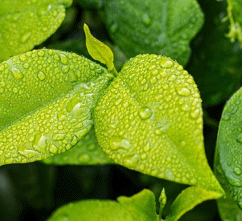
Plant
WordNet
noun
(1) A living organism lacking the power of locomotion
(2) Buildings for carrying on industrial labor
"They built a large plant to manufacture automobiles"
(3) Something planted secretly for discovery by another
"The police used a plant to trick the thieves"
"He claimed that the evidence against him was a plant"
(4) An actor situated in the audience whose acting is rehearsed but seems spontaneous to the audience
verb
(5) Put firmly in the mind
"Plant a thought in the students' minds"
(6) Place something or someone in a certain position in order to secretly observe or deceive
"Plant a spy in Moscow"
"Plant bugs in the dissident's apartment"
(7) Fix or set securely or deeply
"He planted a knee in the back of his opponent"
"The dentist implanted a tooth in the gum"
(8) Put or set (seeds, seedlings, or plants) into the ground
"Let's plant flowers in the garden"
(9) Set up or lay the groundwork for
"Establish a new department"
(10) Place into a river
"Plant fish"
WiktionaryText
Etymology 1
From , later influenced by French .
Noun
- An organism that is not an animal, especially an organism capable of photosynthesis. Typically a small or herbaceous organism of this kind, rather than a tree.
- The garden had a couple of trees, and a cluster of colourful plants around the border.
- An organism of the kingdom Plantae; now specifically, a living organism of the Embryophyta (land plants) or of the Chlorophyta (green algae), a eukaryote that includes double-membraned chloroplasts in its cells containing chlorophyll a and b, or any organism closely related to such an organism.
- Now specifically, a multicellular eukaryote that includes chloroplasts in its cells, which have a cell wall.
- A factory or other industrial or institutional building or facility.
- An object placed surreptitiously in order to cause suspicion to fall upon a person.
- That gun's not mine! It's a plant! I've never seen it before!
- Anyone assigned to behave as a member of the public during a covert operation (as in a police investigation).
- A person, placed amongst an audience, whose role is to cause confusion, laughter etc.
- A play in which the cue ball knocks one (usually red) ball onto another, in order to pot the second; a set.
- 2008, Phil Yates, The Times, April 28 2008:
- O’Sullivan risked a plant that went badly astray, splitting the reds.
- 2008, Phil Yates, The Times, April 28 2008:
- A large piece of machinery, such as used in earthmoving or road construction.
Usage notes
The scientific definition of what organisms should be considered plants changed dramatically during the 20th century. Bacteria, algae, and fungi are no longer considered plants by those who study them. Many textbooks do not reflect the most current thinking on classification.
Verb
- To place (a seed or plant) in soil or other substrate in order that it may live and grow.
- To place (an object, or sometimes a person), often with the implication of intending deceit.
- That gun's not mine! It was planted there by the real murderer!
- To place or set something firmly or with conviction.
- Plant your feet firmly and give the rope a good tug.

